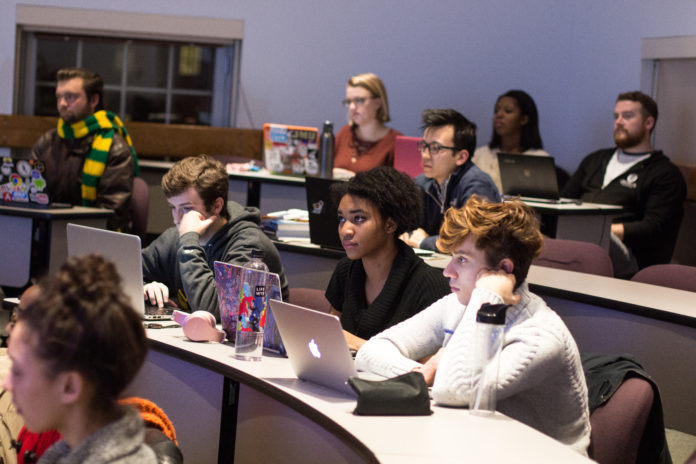Last Thursday March 21, Class of 2020 President Kelsey Vita ’20 and Chair of the Senate Ellie Thomas ’20 won the Student Assembly presidential election
2,629 is a massive number of students leaving their ballots blank. Voting is an act of faith in a representative democracy. Voting is both a sacred right and duty. It should not be taken for granted.
The SA campaign was very positive, focusing on mental health and wellness, sustainability, diversity, Title IX and sexual assault prevention, student rights, dining services and community building, public affairs and campus safety, finance reform, academic affairs, accessibility and communications and transparency. Each platform was planned and constructed based on the interests of the student body. Despite this, there are still many people who chose not to vote.
I don’t know what to think about that. Some individuals at the College argue that it is incorrect to assume these people are just too lazy or uninterested in voting, which I have assumed is the reason for most people to choose not to participate in the voting process. Some people I know personally complain to me that it is always hard to avoid eye contact with people who are tabling at Sadler. Without thinking further, I get their point, and it is reasonable to speculate that striking up conversation with the students who are tabling is a much more uncomfortable thing for them to do. This not only makes tabling at Sadler an inefficient way to educate the student body on things such as candidates’ campaign messages and voting, but also largely decreases the possibility that candidates and their team can hear from students. People who are
Some people believe that voting is like owning a gun or practicing a religion. The Constitution guarantees its people the right to do these things, but they are not required. We also have a right not to do these things. However, if we continue to opt out of having a say in shaping our destiny as students at the College, if this idea that casting a vote is futile or lack of interest becomes the norm, apathy or distrust will eventually exempt us from taking an active part in determining our student body’s future. Ultimately, we have only ourselves to blame for dismantling democracy. Incentives to vote not only affect the likelihood that which candidate can win. Incentives to vote not only affect the likelihood that which candidate can win, but they also keep our democracy safe.
To vote. Or not to vote. Maybe there are bigger questions. To care or not to care? To be informed or not be informed?To remember or not remember that democracy works best when all participate responsibly?
Email Harper Tang at

